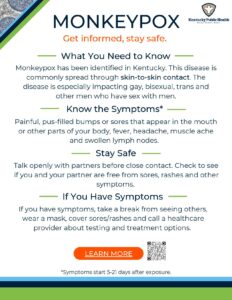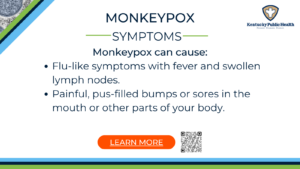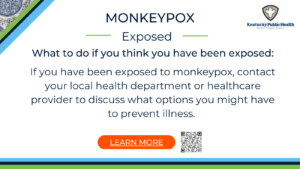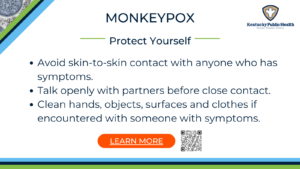- Close contact to someone with known or suspected Mpox virus (direct skin-to-skin contact or other close contact)
- Diagnosis of HIV
- Diagnosis of chlamydia, gonorrhea, or early syphilis, within the prior 12 months.
- Receiving medications to prevent HIV infection (PrEP)
- Exchanging sex for money or nonmonetary items
- Attending an event/venue where there was a high risk of exposure to an individual(s) with Mpox virus through skin-to-skin or sexual contact.
- Gay, bisexual, or other men who have sex with men, or transgender people who are sexually active
- Laboratory workers who routinely perform Mpox or orthopox virus testing
- Healthcare professionals who have had high-risk occupational exposure without using recommended personal protective equipment in the past 14 days
- Individuals who, on a case-by-case basis, are determined at high risk for contracting Mpox.
Learn more about Mpox here: Kentucky Department for Public Health, with case count information at https://chfs.ky.gov/agencies/dph/dehp/idb/Documents/MPXReport.pdf.
Mpox Information
Mpox is a rare disease caused by infection with the monkeypox virus. Mpox virus is part of the same family of viruses as variola virus, the virus that causes smallpox. Mpox symptoms are similar to smallpox symptoms, but milder, and Mpox is rarely fatal. Mpox is not related to chickenpox.
Mpox was discovered in 1958 when two outbreaks of a pox-like disease occurred in colonies of monkeys kept for research. Despite previously being named “monkeypox,” the source of the disease remains unknown. However, African rodents and non-human primates (like monkeys) might harbor the virus and infect people.
The first human case of Mpox was recorded in 1970. Prior to the 2022 outbreak, Mpox had been reported in people in several central and western African countries. Previously, almost all Mpox cases in people outside of Africa were linked to international travel to countries where the disease commonly occurs or through imported animals. These cases occurred on multiple continents.
Learn more from the CDC: Mpox Information.
Additional Information
- How to get tested
If you have symptoms of Mpox, please contact your healthcare provider or visit an urgent treatment center to see if you should be tested and treated. Please isolate at home until you can be seen. Wear a face mask to your appointment and make sure any lesions are completely covered. When you arrive please tell the provider that you are experiencing symptoms consistent with Mpox.
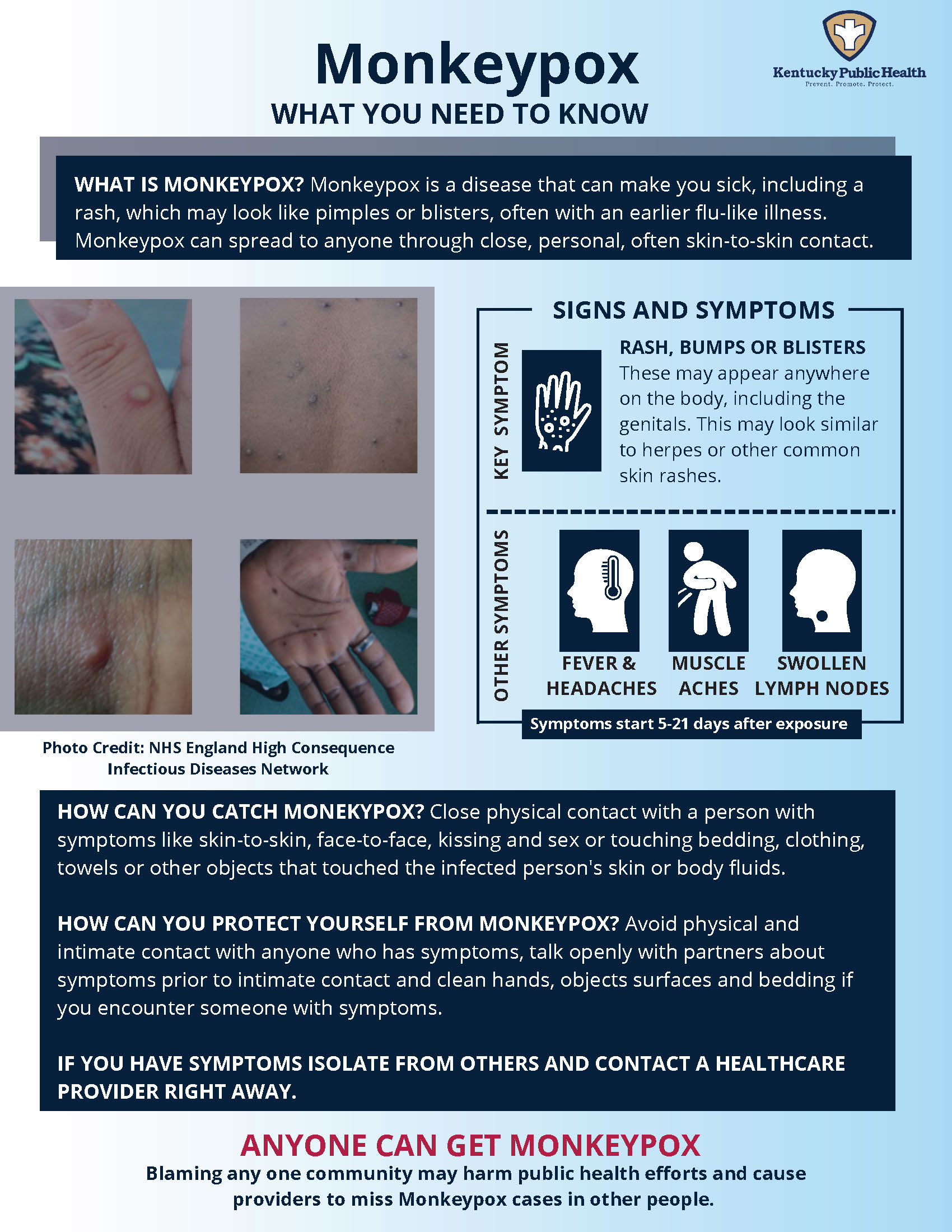
- What should someone do if they don’t have a healthcare provider or health insurance and suspects they have Mpox?
If you are experiencing severe symptoms, please seek care at an emergency room. Wear a face mask to your appointment and make sure any lesions are completely covered. When you arrive please tell the provider that you are experiencing symptoms consistent with Mpox.
Mpox Symptoms
Mpox is a rare disease caused by infection with the Mpox virus. Mpox virus is part of the same family of viruses as smallpox. Mpox symptoms are similar to smallpox symptoms, but milder; and Mpox is rarely fatal. Mpox is not related to chickenpox.
Symptoms of Mpox can include:
- Fever
- Headache
- Muscle aches and backache
- Swollen lymph nodes
- Chills
- Exhaustion
- A rash that can look like pimples or blisters that appears on the face, inside the mouth, and on other parts of the body, like the hands, feet, chest, genitals, or anus.
The rash goes through different stages before healing completely. The illness typically lasts 2-4 weeks. Sometimes, people get a rash first, followed by other symptoms. Others only experience a rash.
